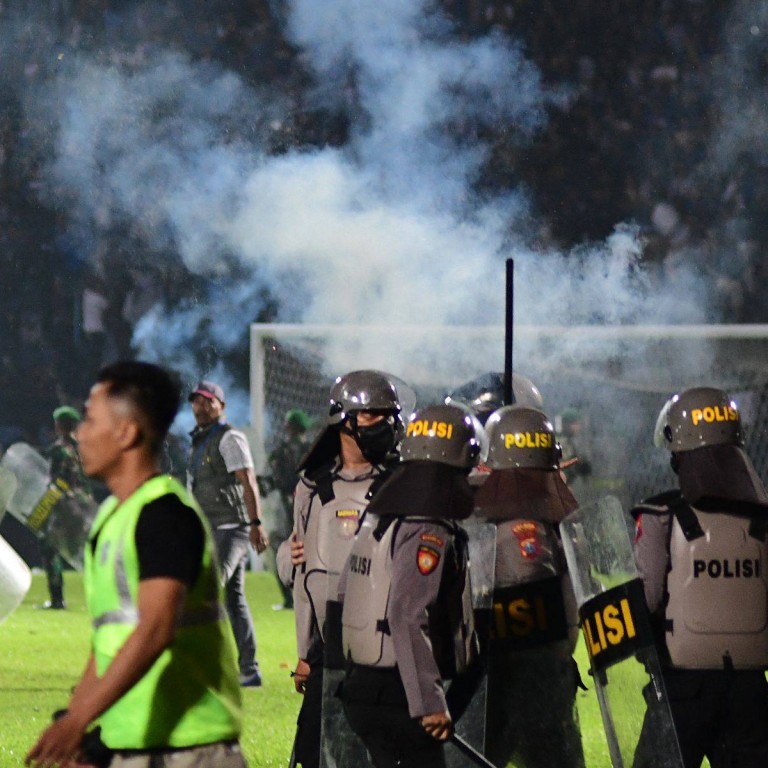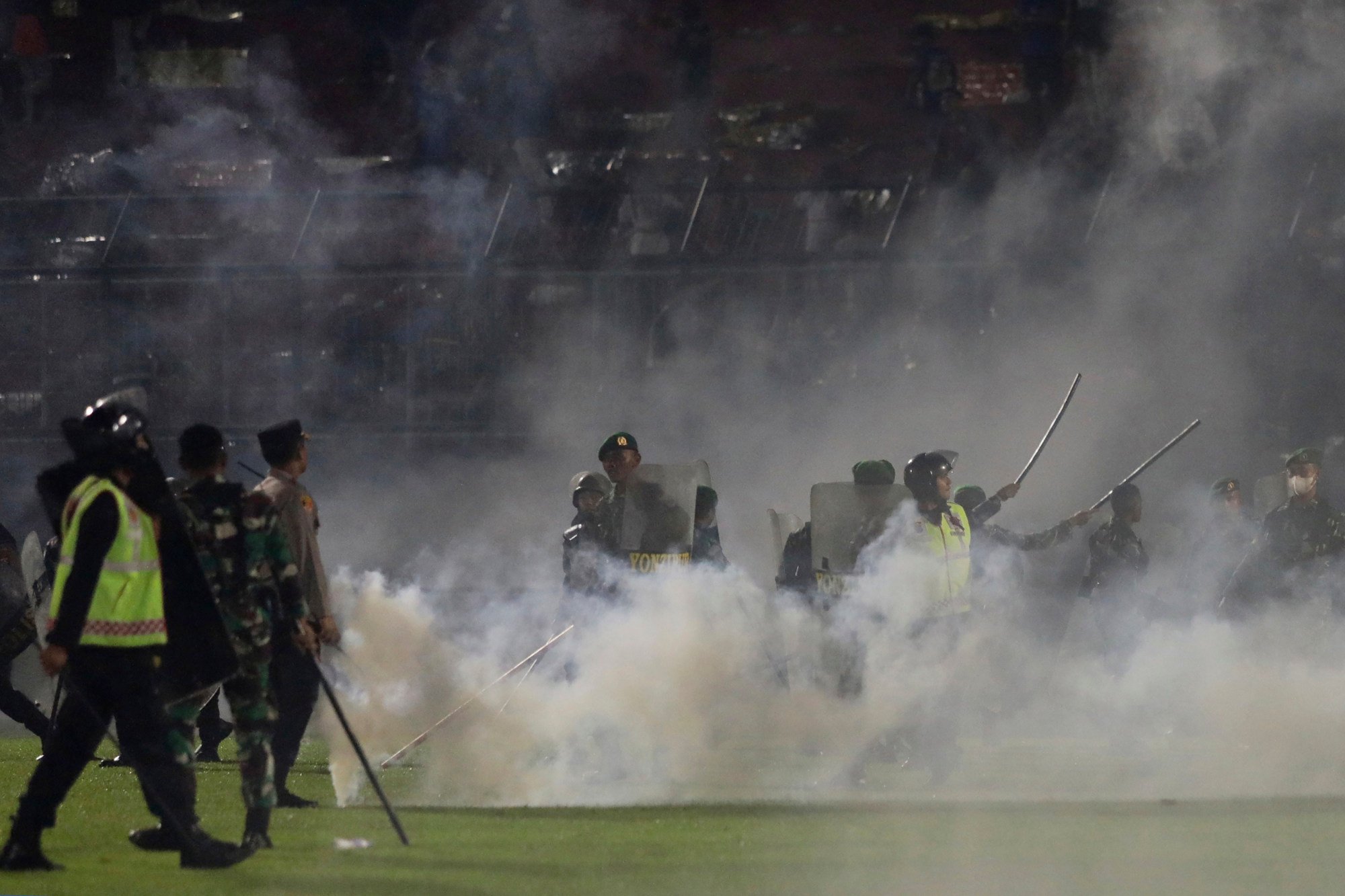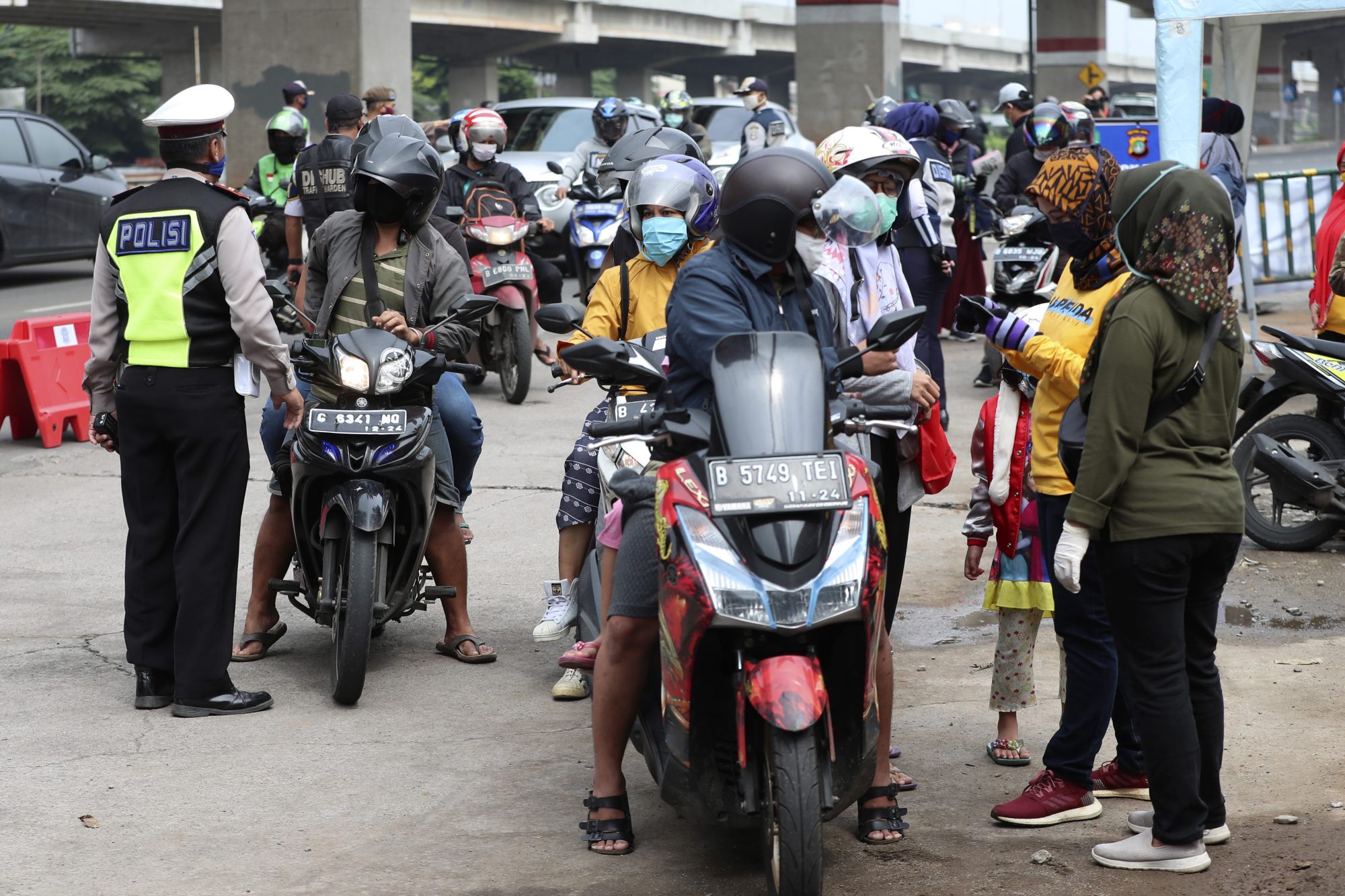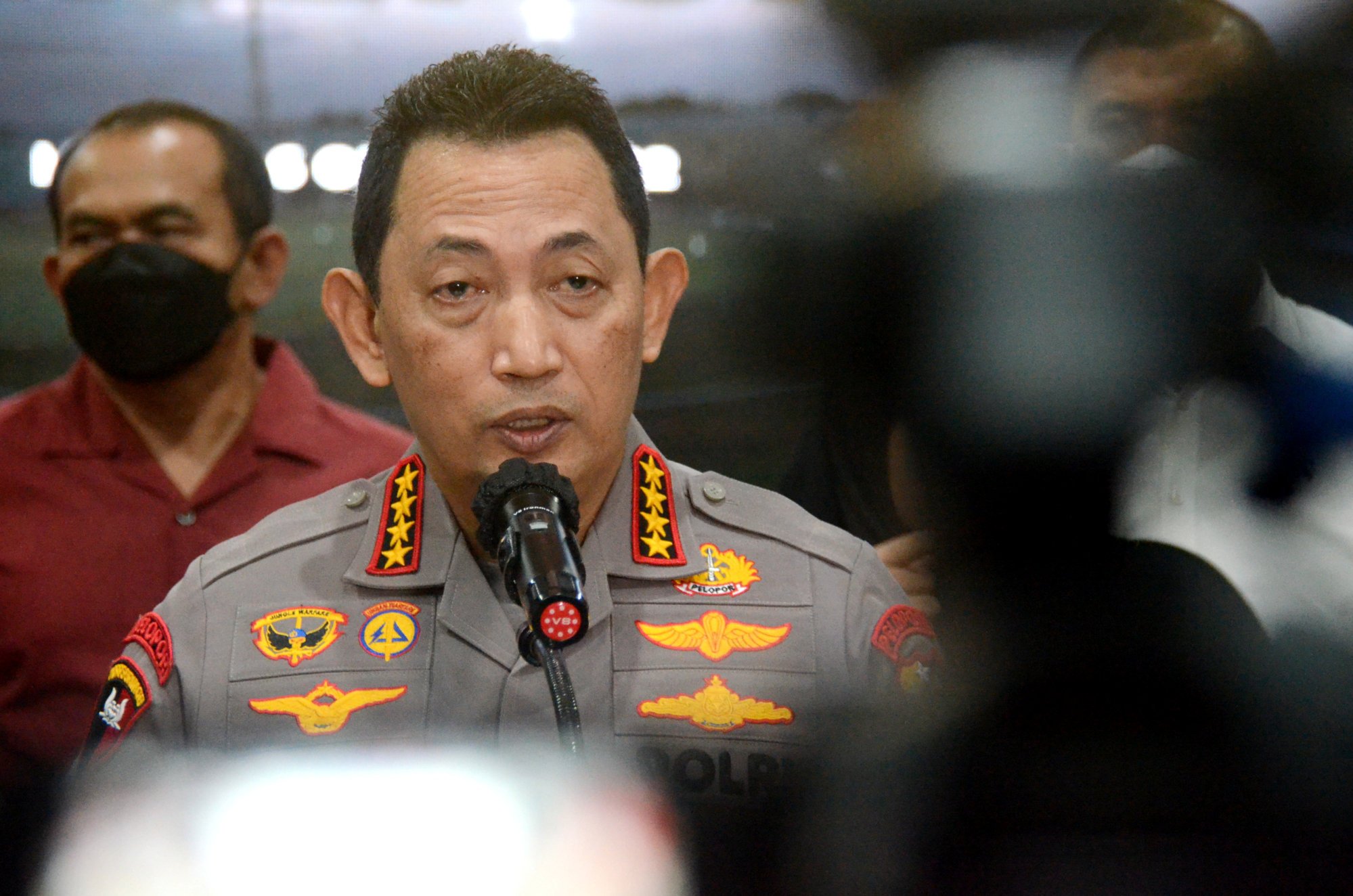
Indonesian police scandals show Jokowi needs reforms to repair trust, critics say
- The president recently lashed out at top officers over a series of controversies that have caused the public to have even less trust in the police force than before
- Analysts say structural reforms and democratic accountability are needed restore credibility and erase the perception that police ‘exist for their own enrichment’
Widodo last Friday summoned senior officers from the regional and national levels to the presidential palace for an unprecedented dressing-down. They were instructed to show up without their attributes and to line up in a single file before entering the palace, bringing nothing but notebooks, with mobile phones and personal assistants banned from the meeting.
“Jokowi was trying to draw a line, and use his own power and capacity to bring the police to heel, to signal to his rivals that he is in control of the police and he’s managing the situation,” said Jacqui Baker, Indonesia policing expert from Australia’s Murdoch University, referring to Widodo’s nickname.
“I don’t think that’s going to do much to seriously reform the police. What we need is structural reform and serious democratic accountability for the police,” she said.
Long-held distrust of police in the world’s fourth-most populous nation is encapsulated in a popular saying: “If you lose a goat and you go to the police, you end up losing a cow.”

The institution’s culture of corruption is deep-rooted, police experts say, with officers often turning a blind eye to colleagues’ misconduct or crimes, and demonstrating a blatant disrespect for the laws they are supposed to uphold.
The 124-page report said police erased a three-hour long CCTV footage at the stadium and banned the download of footage from another security camera. The team, led by the country’s chief security minister, also said “indiscriminate” use of tear gas was the main cause of the stampede, dismissing police claims that the stadium’s narrow doors and overcapacity were to blame.

Illegal fees, repressive conduct, luxurious lives
At the palace, Widodo laid out to 559 regional police heads in attendance the public’s top complaints about the force, chief among them the illegal fees officers charged civilians in exchange for clearing their violations.
On Indonesian roads, for example, it is common to find motorists stopped by traffic officers only to be let go in a few minutes after money has changed hands behind a traffic post.
Other complaints included police officers’ luxurious lifestyles, their heavy-handed approach and deliberately finding fault with citizens, Widodo said.
“The public is monitoring what kind of cars [you drive], [your] huge motorbikes, [your] brands of shoes, your clothes’ [brands]. We have to understand this as we live in a transparent world,” Widodo said.
“Don’t feel like you’re tough just because you have good cars, you have big motorbikes. You have to be careful. So I remind you, police chiefs, regional police heads, all of you high-ranking officers to put a brake on your [luxurious] lifestyles.”
If you lose a goat and you go to the police, you end up losing a cow
Bambang Rukminto, a researcher in the police sector from Jakarta-based Institute for Security and Strategic Studies, said the gathering could be perceived as Widodo’s “ultimatum” to the high-ranking officers: clean up your act or risk being sacked.
However, observers have said no amount of scolding can boost domestic trust in the police force without structural reforms in the institution.
“My impression was that [the gathering of the police] was fairly performative, insofar as he brought them together to scold them around some of the things that have been happening lately,” said Ian Wilson, senior lecturer in politics and terrorism at Australia’s Murdoch University.
“Of course, the problems are much deeper than this and it really is a structural problem, how to reform the police at a deep level so that they act in a professional way and [they are] trusted by the people of Indonesia.
“Initially it was a big focus of Reformasi, that the police separated from [military], and then developed a professional police force. I think it’s accurate to say that it failed. Every survey you see over the last decade puts the police in among the least trusted institutions of government,” he said, referring to the 1998 student-led revolution that toppled dictator Suharto’s 32-year regime.
Warring factions
Baker from Murdoch University suggested that last week’s arrest of Inspector General Teddy Minahasa, who is suspected of distributing 5kg of crystal meth to North Jakarta, was the result of an internal rift.
“This is the latest in a series of shocking leaks that are coming out of the police and being generated by factions within the police who are seeking to destabilise the current national police chief and install somebody else,” she said.
Current chief General Listyo Sigit Prabowo served as Widodo’s aide-de-camp from 2014 to 2016. When he was appointed last year, he was an unknown figure to most officers and did not have much of a power base, Baker said. But the force’s problems go beyond Listyo’s tenure.

“If we ask the question, ‘is justice provided by the police for ordinary people?’ The answer is that they never have. People don’t go to the police for their criminal justice issues,” Baker said.
“[The police] exist for their own enrichment and they exist to mediate and weigh in on political disputes, but they don’t exist for the Indonesian people. I think we need to return to the conversation of what kind of institution is going to provide rule of law, criminal justice and public safety because Indonesian police are not doing that. The current system, as it is, is broken.”
Wilson predicted, however, that the scandals would not taint Widodo’s legacy or affect the performance of his political party PDIP at the 2024 polls, as Indonesian elections tended to revolve around identity politics instead of public policies.
“Jokowi is a bit of a Teflon president … he can have all these scandals around him but he doesn’t seem to get tainted or smeared by this, as shown by his continual high popularity levels,” Wilson said.


